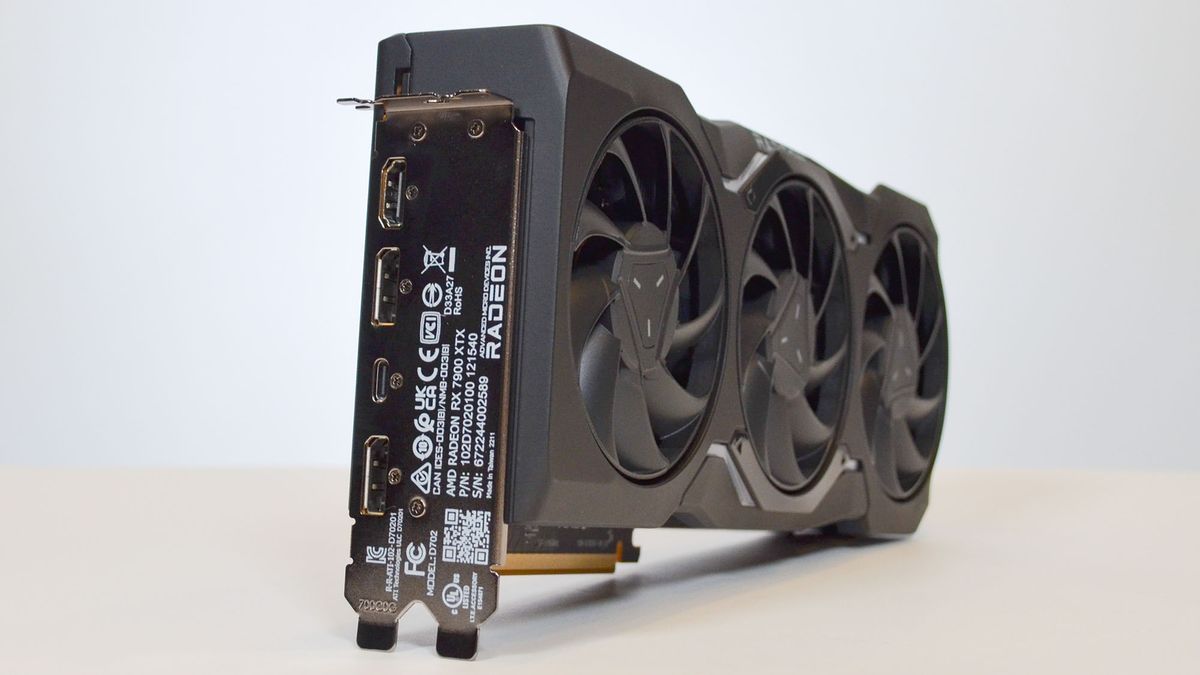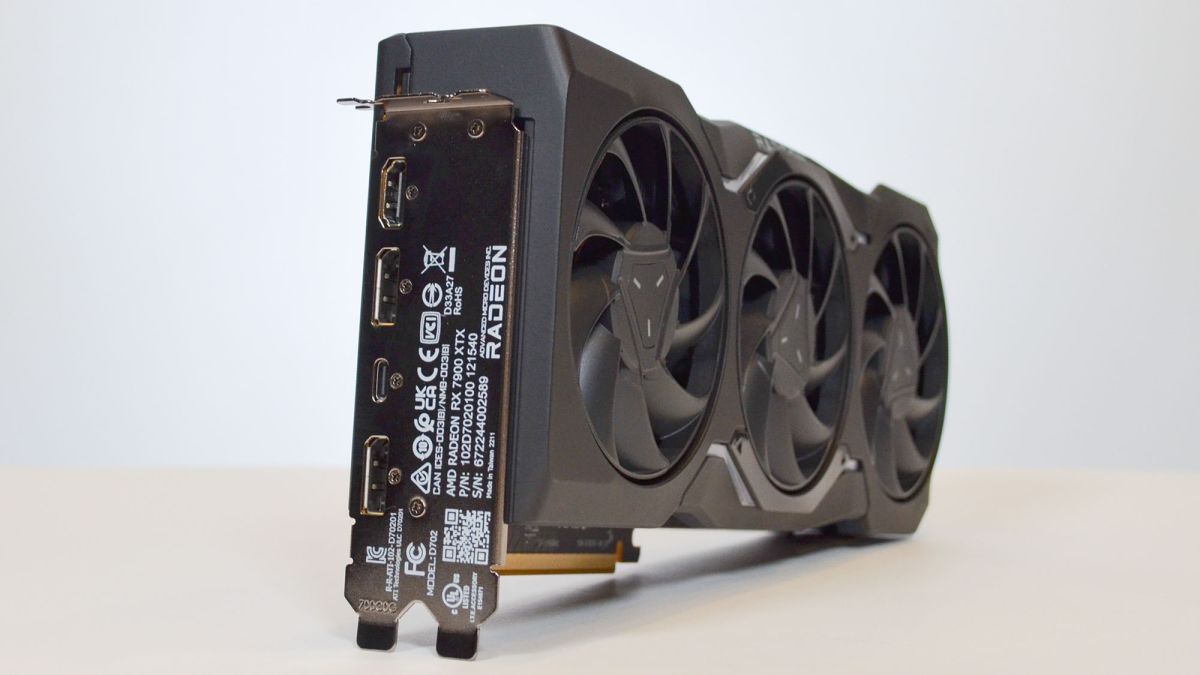
With the announcement of AMD Ryzen 7000X3D-series chips at CES 2023, a lot of attention has been paid to what the new stackable cache technology can bring to Zen 4 processors. According to a new teardown of the Radeon RX 7900 XT, there is reason to hope that this same technology will be making its way to a graphics card near you.
What else can you see? A linear array of “spots” that look remarkably like the keep out zones on X3D, and that are on the same 17-18 um pitch. Could they be considering stacked MCD functionality (or maybe they’re something else)?January 27, 2023
Tom Wassick, a self-described “semiconductor packaging engineering professional”, tore down the new Radeon RX 7900 XT (opens in new tab) to do a deep dive into its guts using infrared imaging. He says the same kind of 3D V-cache connections used for the AMD Ryzen 5800X3D exist on the Radeon RX 7900 XT’s MCD die, though there is a blank piece of silicon where a compute-capable die could go.
It isn’t clear that this type of connection is meant specifically for 3D V-cache, as Tom’s Hardware (opens in new tab) points out, but that’s the only thing so far that AMD has announced for its chiplet stacking technology.
It has long been rumored that AMD would be bringing 3D V-cache to its GPUs after successfully implementing it in its Ryzen 5800X3D processor, as well as its forthcoming Ryzen 9 7950X3D, Ryzen 9 7900X3D, and Ryzen 7 7800X3D due out in February.
What would 3D V-cache even do for a GPU?
The idea behind V-cache is to use a hybrid bonding technique to put a slab of cache memory on top of the compute cores of a processor. This can greatly expand the amount of cache available, which saves the processor critical clock cycles since it doesn’t have to go further out to regular memory to fetch data or instructions.
In terms of a computer’s CPU, this produces a huge increase in gaming performance, but it’s not clear that such a performance gain would be achieved with GPU cache, though it’s likely to see some improvement.
Another problem though would be thermal performance, an especially important consideration for a graphics card. With 3D V-cache, the additional slab of cache on top of the compute cores of the processor complicates cooling. AMD might have to reduce clock speeds to compensate, which could negate any of the gain that additional cache could provide.
We aren’t likely to see these developments on mainstream Radeon cards this year, but we should expect them to drop during midcycle refreshes in cards like the RX 7950 XT or the RX 7650 XT, probably sometime in late 2023 or early 2024.
Services Marketplace – Listings, Bookings & Reviews
